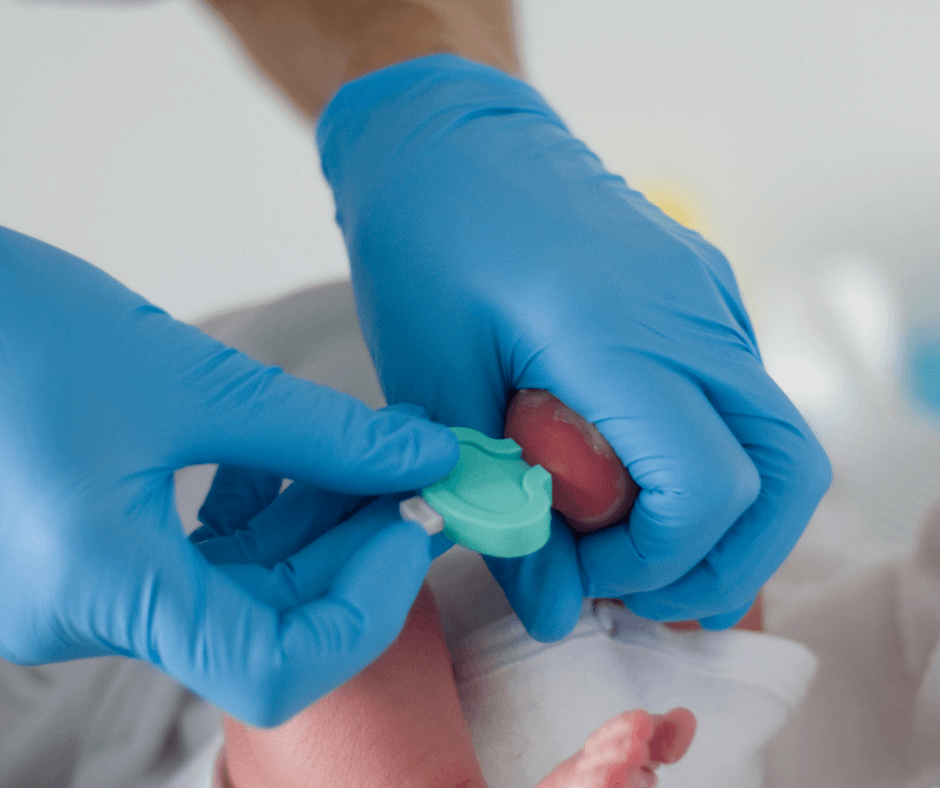Early Check is a unique voluntary research study that screens newborns for Fragile X syndrome and the premutation and Spinal Muscular Atrophy free of charge. It gathers important information and hopes to show the benefits of early testing and treatment and improve newborn screening (NBS) across the United States. More conditions will be added to the Early Check screening panel in the near future.
NBS is a public health program in each state that tests tiny blood samples collected from a heel prick in almost every newborn baby. NBS programs screen for at least 30 rare but serious childhood conditions so proven treatment can start before symptoms appear. The list of conditions states can screen for is called the RUSP (Recommended Uniform Screening Panel ). States generally include all the conditions on the RUSP and may add their own, but changes to both the RUSP and to state NBS programs often take a long time.
Before a condition can be added to the RUSP, public health officials need a lot of solid scientific information, such as how it affects babies, children, and adults; if there is treatment that helps infants with the condition; and if treatment before symptoms start helps more than treatment that begins later. Unfortunately, getting answers to these questions takes a long time when conditions are rare or hard to diagnose because most children get a diagnosis long after they show symptoms.
Early Check hopes to gather the information public health officials need to more quickly decide which conditions should be added to state NBS programs. Early Check is designed so that as the evidence about the benefits of screening for these conditions builds, they may be removed from the Early Check study panel and other conditions will be added, providing for continuous research into NBS. That means more babies could get helpful therapies, take part in clinical trials, or have life-saving treatments before they show symptoms.
Early Check offers free screening to all newborns across North Carolina. It is voluntary, with the mother’s permission, and uses the same blood sample from NBS, so no extra blood draw or appointment is needed. If Early Check testing shows that a baby has a condition tested for, a free second test is provided to confirm the diagnosis. Then Early Check will help connect families to specialty medical care. This allows babies to get treatment or therapy before symptoms start.
Early Check screening for Fragile X will give researchers important information about how Fragile X affects infants and toddlers before any signs or symptoms would be noticed by parents or doctors and provides very early developmental assessments and intervention. It will also help prove whether early diagnosis and intervention has long-term benefits for children with Fragile X syndrome.
Check out the Early Check website for detailed information on how the program works . Early Check is a group effort led by RTI International. Partners include the North Carolina Division of Public Health, the North Carolina State Laboratory of Public Health, and doctors and researchers from Duke University, University of North Carolina School of Medicine, and Wake Forest School of Medicine. You might also be interested in a recently published paper, Early Check: Translational Science at the Intersection of Public Health and Newborn Screening.
For more information on the blood test for Fragile X and interpreting its results, visit our page, Testing and Diagnosis .






